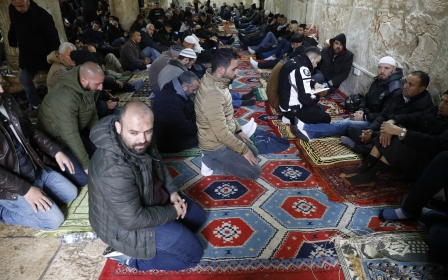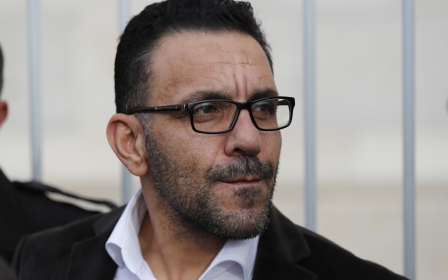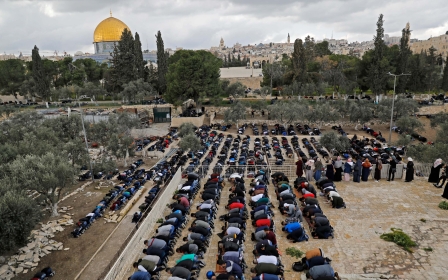Israeli court orders new closure for Al-Aqsa prayer space
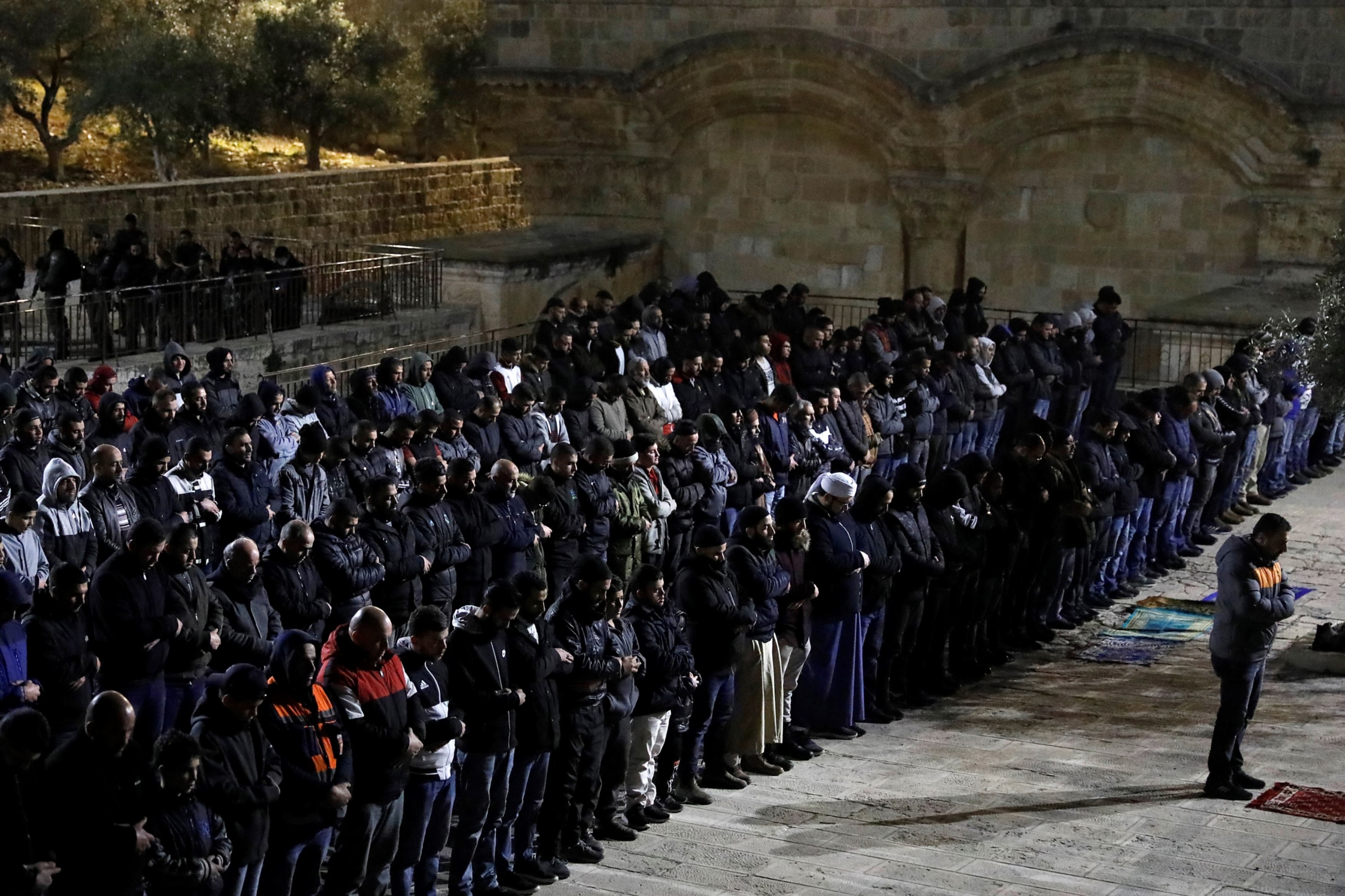
An Israeli court on Sunday ordered authorities to once again close a holy site within Jerusalem's Al-Aqsa mosque compound that that was only recently reopened for Muslim prayer.
The religious authority that manages the site, the Waqf, reopened the Bab al-Rahmeh (Mercy Gate) prayer space in February despite opposition from Israeli authorities, who first closed the site to Muslims during the Second Intifada, or uprising, the 2000-2005 outbreak of heightened Israeli-Palestinian conflict.
Israeli police detained several senior Jerusalem religious officials and banned them from entering the mosque's compound.
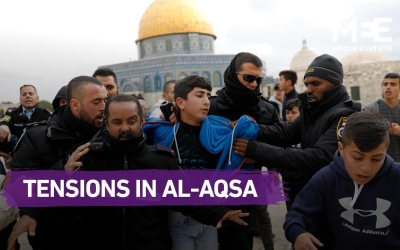
The Jerusalem magistrates court said Bab al-Rahmeh, which is part of the larger, sealed Bab al-Dhahabi (Golden Gate), on the eastern edge of the Al-Aqsa compound, should be closed while the case continues.
The Jordan-sponsored Waqf was given 60 days to respond to the court case involving the building. Israeli police have called for the building to be closed.
"Israel seeks to turn Bab al-Rahmeh into an abandoned area with a view to facilitating the annexation process," Palestinian Authority Minister of Jerusalem Affairs and newly minted member of the Waqf Adnan al-Husseini said in February.
While Israel wrested control of East Jerusalem and the West Bank from Jordan in the 1967 war, the Hashemite kingdom has nonetheless retained control over the Al-Aqsa compound itself - known to Jews as the Temple Mount - through the Islamic Waqf that administers the holy site.
Israel, however, controls all areas outside the compound as part of its annexation of East Jerusalem, where the Old City lies.
Jewish Israelis believe that the Al-Aqsa compound is where the Second Temple once stood, and some far-right Israeli activists have advocated for its destruction to make way for a Third Jewish Temple.
On 14 February, the Jordanian government agreed to expand the number of members in the Waqf administrative council from 11 to 18, for reasons that remain unclear.
The newly expanded council headed that same day to Bab al-Rahmeh, which has been closed off by Israeli forces since 2003.
"We went in to renovate – the hall had been abandoned for ages and there was decay from the rain," Ekrima Sabri, the head of the Supreme Islamic Committee and new member of the Waqf, told Middle East Eye in February.
"After that, we decided to pray. The Israeli reaction was that we prayed without their permission, so they placed iron chains," he added. "We are praying in our mosque. We have every right to pray on every inch of the Al-Aqsa mosque compound."
Israeli police accused the Waqf of disturbing the status quo - a delicate balance of prayer and access rights for the religious site - by reopening the building.
Palestinians say the status quo was disturbed when Bab al-Rahmeh was closed in the first place.
Middle East Eye delivers independent and unrivalled coverage and analysis of the Middle East, North Africa and beyond. To learn more about republishing this content and the associated fees, please fill out this form. More about MEE can be found here.


